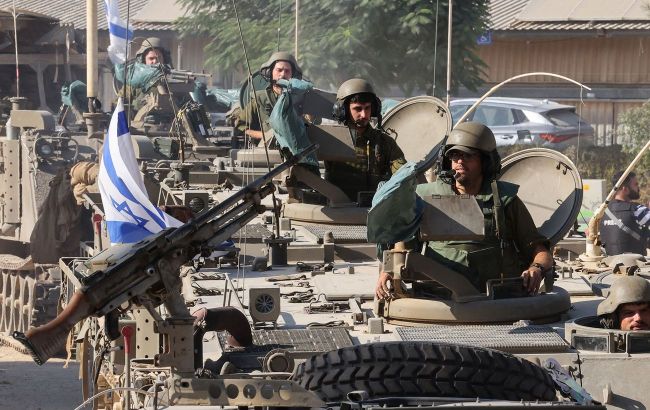Norway reconsiders Israeli investments: Reason named
 Norway accused of supporting the Israeli army (Illustrative photo: Getty Images)
Norway accused of supporting the Israeli army (Illustrative photo: Getty Images)
Norway will reassess trillions of dollars in investments in several Israeli companies suspected of being linked to the war in the Gaza Strip, according to the Financial Times.
The country’s government has instructed its $2 trillion sovereign wealth oil fund to review its investments in Israeli businesses following persistent complaints about financing companies that may be aiding Israel’s military operations in Gaza.
On Tuesday, August 5, Finance Minister Jens Stoltenberg directed Norway’s Central Bank and the oil fund’s ethics council to examine the ownership structures of Israeli firms due to the deteriorating situation in Gaza and the occupied West Bank.
The world’s largest sovereign wealth fund is facing a wave of criticism from political parties, trade unions, and activists who accuse it of financing companies that support Israel’s occupation of Palestinian territories and its offensive in the Gaza Strip.
According to the Financial Times, the latest public outrage erupted after Norwegian newspaper Aftenposten reported this week that the fund had increased its investments over the past two years in Bet Shemesh Engines. The company is allegedly servicing aircraft used by Israel in its bombardments of Gaza.
On Tuesday, August 5, Norwegian Prime Minister Jonas Gahr Støre said he was deeply concerned by these reports and asked Finance Minister Jens Stoltenberg to approach the Central Bank of Norway, which manages the oil fund, for a full explanation.
"The war in Gaza is contrary to international law and is causing terrible suffering, so it is understandable that questions are being raised about the fund’s investments in Bet Shemesh Engines,” Stoltenberg stated.
Controversial companies and political backlash
According to data on the oil fund’s holdings, by the end of 2024, its stake in Bet Shemesh Engines had reached $15 million, or 2.1% of the company, more than four times higher than at the end of 2023, shortly after the Hamas attack on October 7, which triggered the start of the war.
As of late 2024, only 0.1% of the Norwegian oil fund’s assets, out of its total $2 trillion, were invested in Israel. These investments were spread across 65 companies, amounting to 22 billion kroner ($2.1 billion).
Since 2009, the fund’s independent Ethics Council, the body responsible for recommending exclusions from the portfolio, has advised divesting from nine Israeli companies. Two of these were added last year when the council reviewed the ties of 20 companies to the occupation of the West Bank and the war in Gaza.
The head of the oil fund, Nicolai Tangen, told journalists on Tuesday that the investments in Bet Shemesh Engines were made through an external asset manager, and that the company itself is not included on any exclusion lists compiled by the ethical council, the UN, or other organizations. According to him, the fund plans to review the new information.
In response to a question about whether he understands the strong reaction to these revelations, Tangen said, "Of course. I see the same pictures as you — it’s terrible to watch."
Some fund employees are disappointed with what they consider the slow process of the ethical council's recommendation issuance, especially given that protesters’ outrage in Norway has repeatedly been directed directly at the Central Bank in Oslo.
At the same time, the fund fears a political reaction from Israel and especially the US if it decides to make a mass withdrawal from Israeli assets.
FT also reminded that Norway’s centrist-left government is facing increasing pressure from the opposition ahead of the parliamentary elections scheduled for September 8, which are currently considered likely to end with an unpredictable result.
Situation in the Gaza Strip
Israeli Prime Minister Benjamin Netanyahu stated that Hamas does not want to negotiate for the release of hostages, and therefore, the group must be destroyed.
US President Donald Trump is convinced that, due to the failure of negotiations with Hamas, the Israel Defense Forces will have to make decisions regarding further actions in the enclave.
Meanwhile, a widespread famine has arisen in the Gaza Strip due to the fighting. The Israeli army has begun to pause the battles to deliver humanitarian aid to the enclave.

